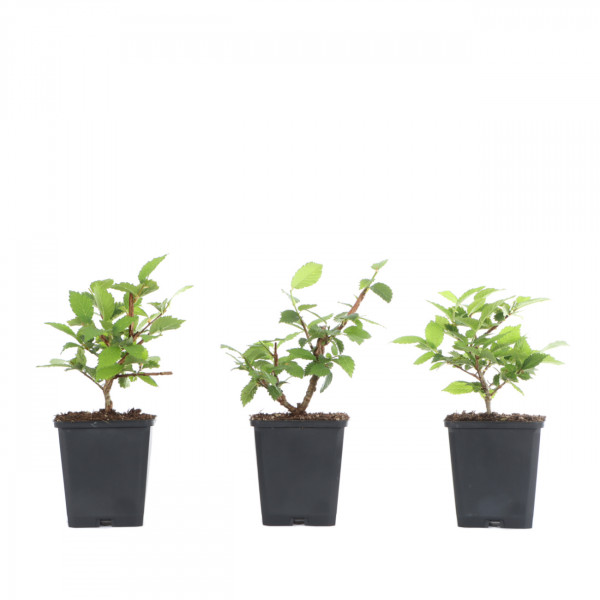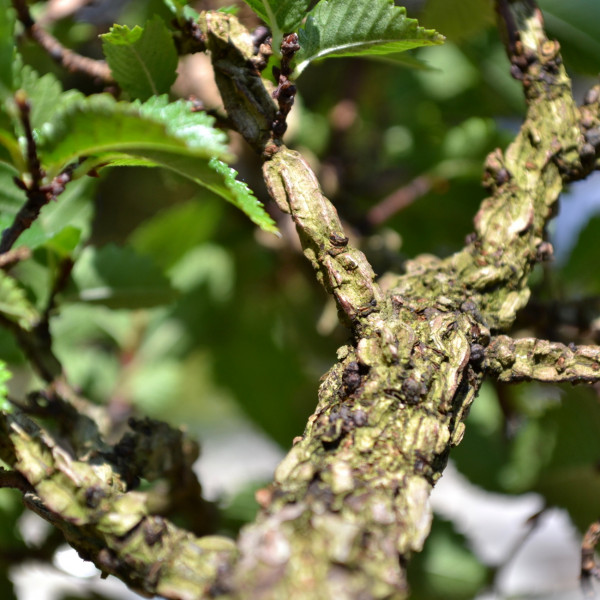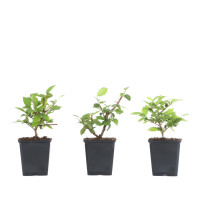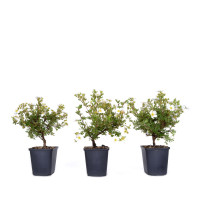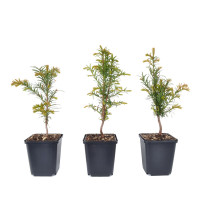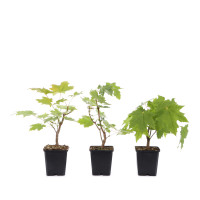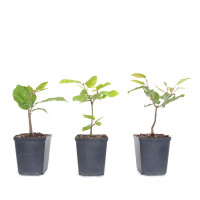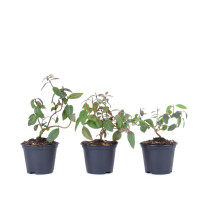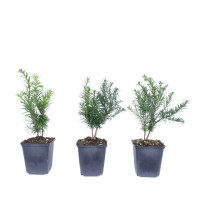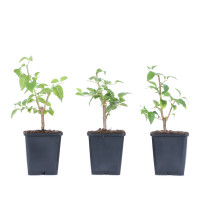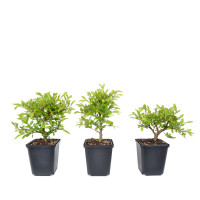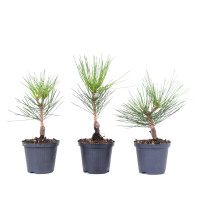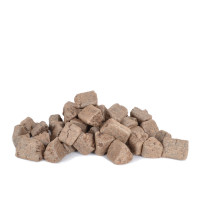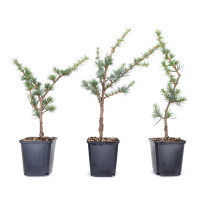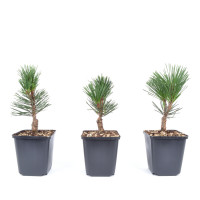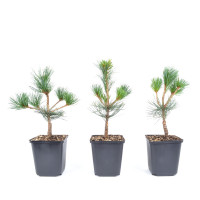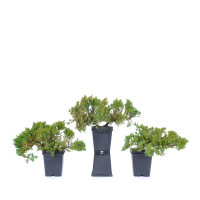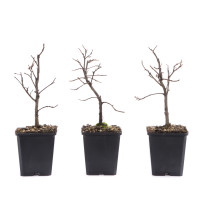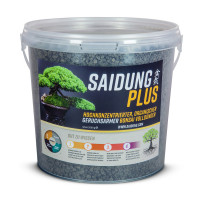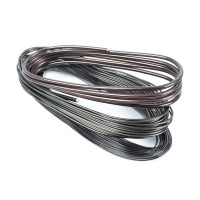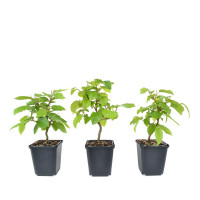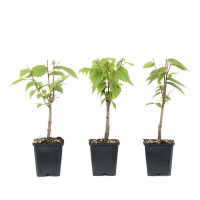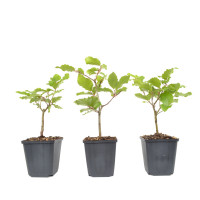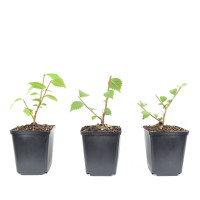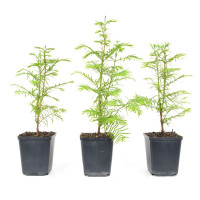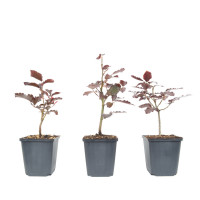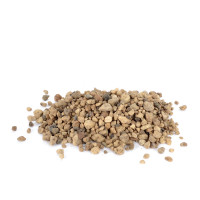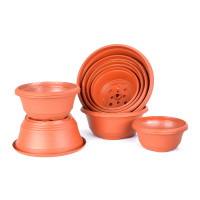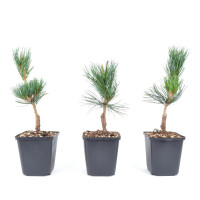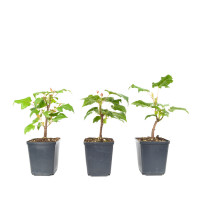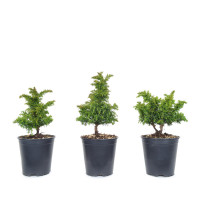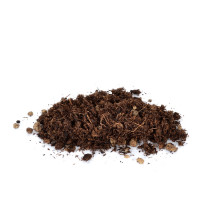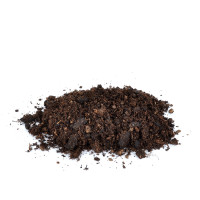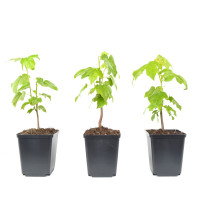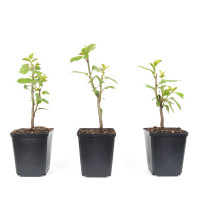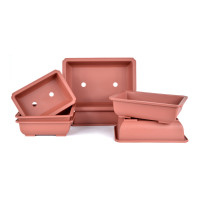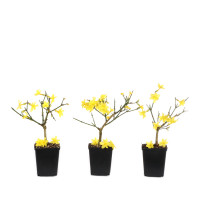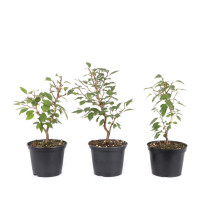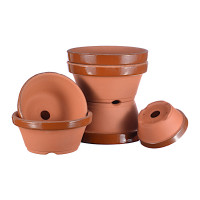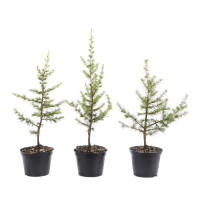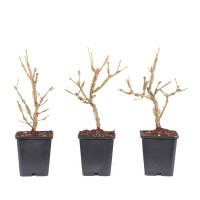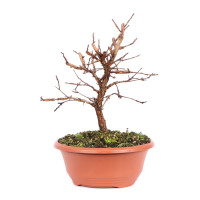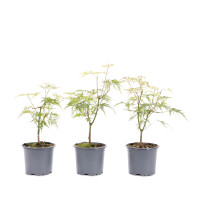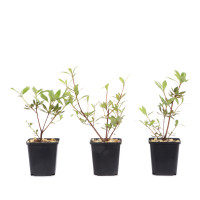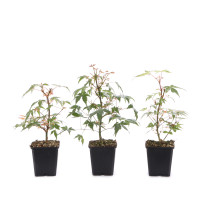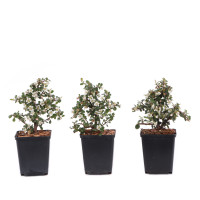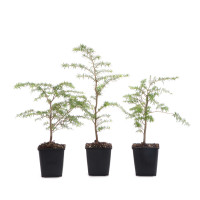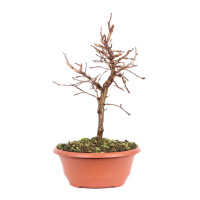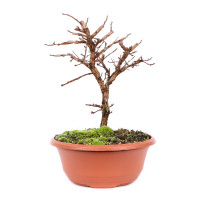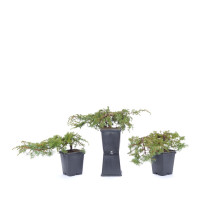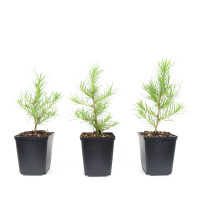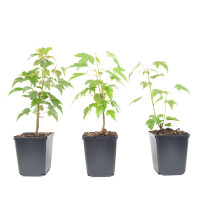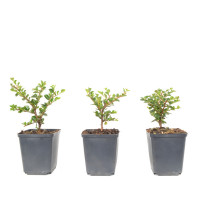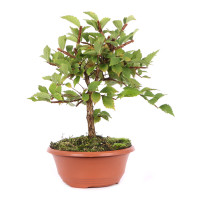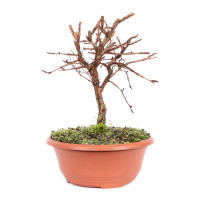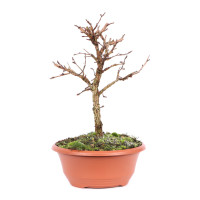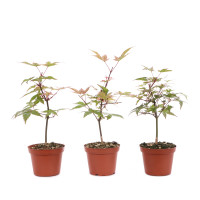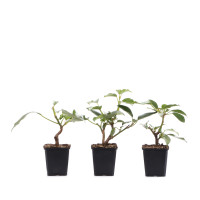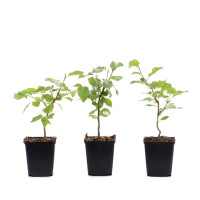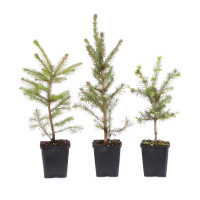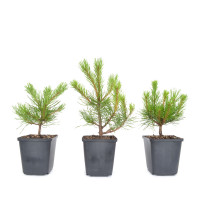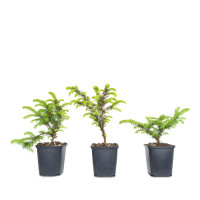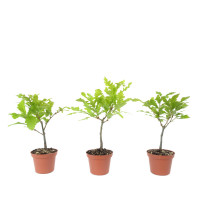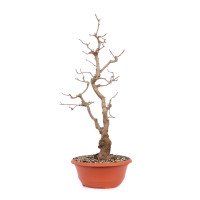- Order number: 1074-03-T
- Height: ca. 5 - 10 cm (no pot)
- Foliage: deciduous
- Bonsai Pot: plastic pot
- Age: 3 years
- Characteristics: attractive autumn colour
- Origin: Germany
- Product contents: You will get a similar plant
Ulmus minor var. - Cork-Barked Field Elm
General:
The field elm is native to Europe and grows in locations where other tree species cannot play their dominance. They can be found in alluvial forests, on dry slopes and generally on wet locations near rivers. The field elm has perhaps the longest history of cultivation by humans, as it was already used extensively as a food tree in prehistoric times. Free-standing, the trees reach a height of up to 30 meters and usually develop a conical crown. The leaves are very diverse, but mostly ovate with a crooked leaf base. The leaves turn yellow in autumn.
Care as a bonsai:
Bonsai can be very easily made from field elm. It is very easy to prune, its growth is strong and in a shell it forms very fine branches with thin branches and small leaves. The plant is best placed in a sunny position and is regularly watered and fertilized. Hard tap water is no problem for the field elm. It is also quite frost-hardy and a sheltered winter quarters is sufficient.
Special features of the variety:
For many years cork-barked field elm was cultivated in our company as black zelkova (Zelkova nire). Today we are of the opinion that it is rather a variety of the field elm. The leaves are very similar to it, but are somewhat coarser, not very asymmetrical and dark green. Although the field elm also partially forms cork strips on young shoots, this characteristic is particularly pronounced in the variety. Even young shoots thicken and a very coarse bark with elongated cork strips quickly develops. These cork strips then also form on the trunk and give even young plants a very natural appearance.

